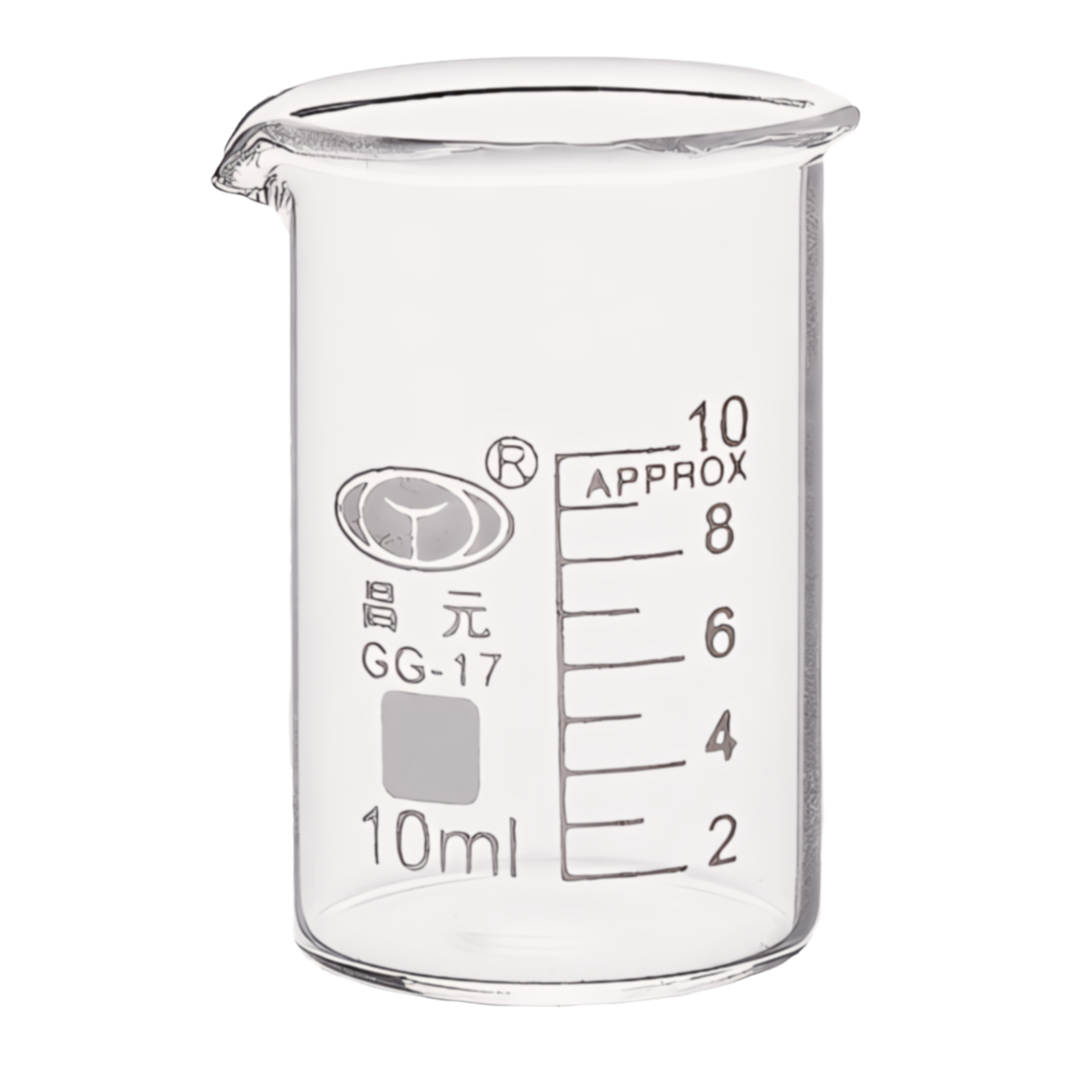Contrebande
Beaker
Beaker
Couldn't load pickup availability
In the intricate art of perfume making, the humble beaker emerges as the ideal vessel for the precise and delicate process of blending solid and liquid raw materials into a fragrant concentrate. Its suitability stems from a combination of material inertness, functional design, and the practicalities of the perfumer's craft.
The Importance of Material and Design
The primary reason for a beaker's prominence in perfumery is its material composition, typically borosilicate glass. This type of glass is favored for its durability and resilience, crucial when working with a diverse range of natural and synthetic ingredients. Borosilicate glass is also non-reactive, ensuring that the chemical integrity of the perfume is not compromised during the blending process. This is paramount as even the slightest interaction between the vessel and the raw materials could alter the final scent profile.
The design of a beaker is also highly advantageous. Its wide opening allows for easy addition of both solid and liquid ingredients, while the pour spout enables precise and dribble-free pouring, minimizing waste of precious materials. Furthermore, the graduated markings on a beaker, though not a substitute for the precision of a digital scale, provide a useful visual guide for the perfumer. The stability of a beaker's flat bottom also makes it less likely to be knocked over compared to other containers like vials.
The Practicality of a Small Beaker
Small beakers, typically ranging from 25 to 100 milliliters, are considered essential for formulating natural perfumes. This is because perfumers often work with small, experimental batches to test and refine their creations. Using a small beaker ensures that valuable and often expensive raw materials are not wasted.
The process of creating a perfume concentrate involves several key steps where a small beaker proves invaluable:
- Dissolving Solids: Solid perfumery materials, such as resins and waxes, often need to be gently heated to melt and dissolve into the liquid components. A borosilicate glass beaker can withstand the gentle heat of a water bath, a common technique for this purpose. Some solids can be dissolved directly in a solvent like ethanol, and a beaker is a suitable container for this process as well.
- Blending: Once all ingredients are in a liquid state, they are carefully blended together. A beaker's shape allows for easy stirring with a glass rod, ensuring a homogenous mixture. For more stubborn materials or to aid in the maturation process, a magnetic stirrer can be used with a Teflon-coated stir bar inside the beaker.
- Accuracy: Perfumery is a science of precision. Ingredients are meticulously weighed using digital scales that measure to at least 0.01 grams. The wide mouth of a beaker makes it easy to add small amounts of ingredients while it sits on a scale.
In essence, the small beaker serves as a perfumer's crucible, a vessel where the artistry of scent composition meets the precision of scientific measurement. Its inert nature, functional design, and suitability for small-batch work make it an indispensable tool for transforming a collection of individual notes into a harmonious and evocative perfume concentrate.
Share






